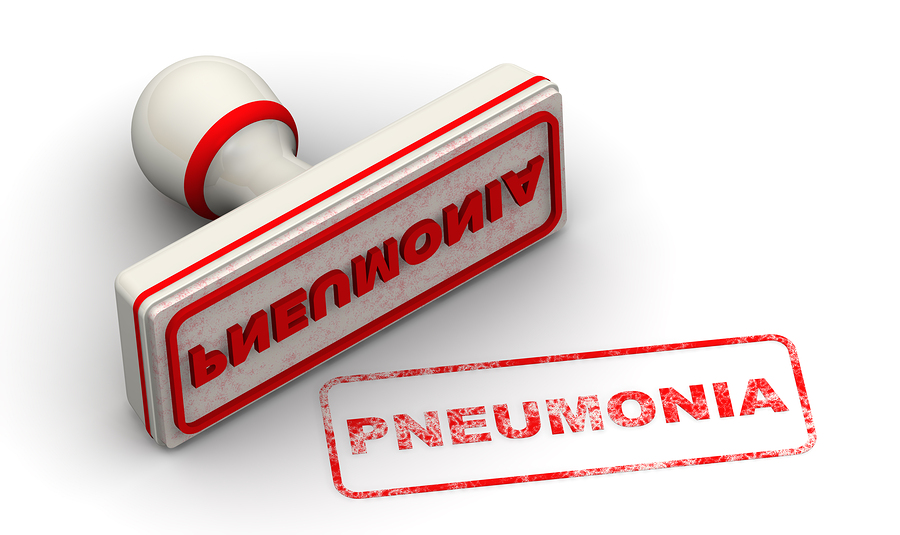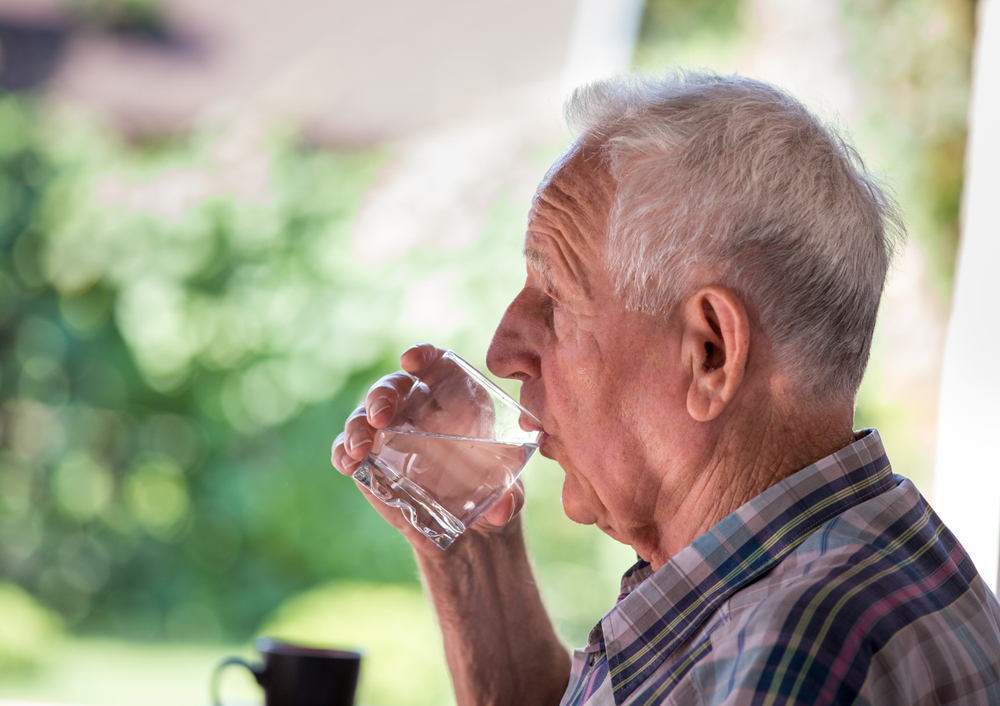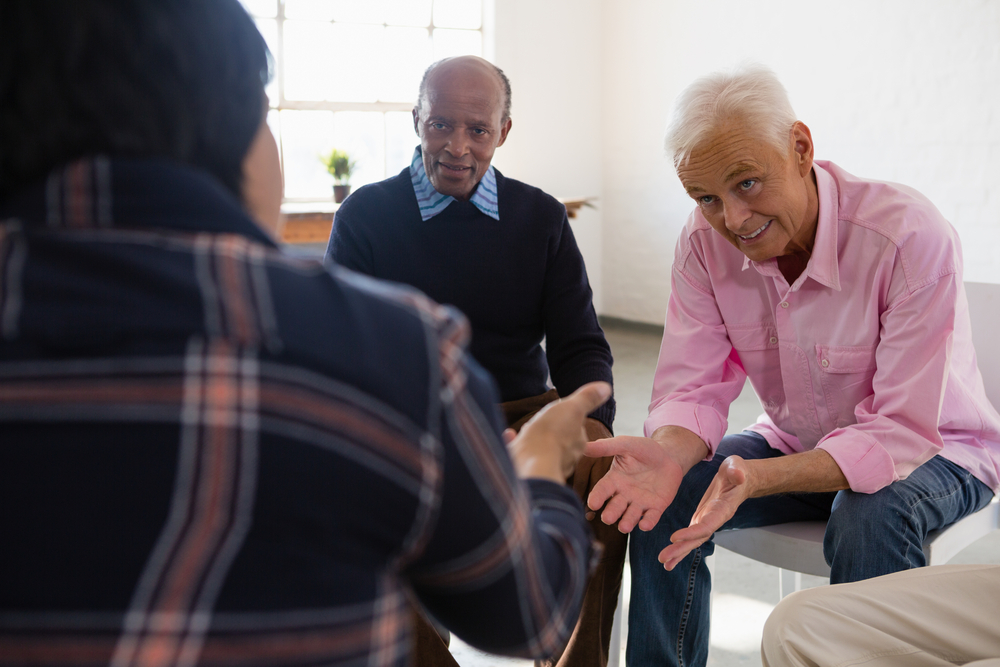Pneumonia in Elderly Adults: What You Should Know

Pneumonia and the complications of the disease can be serious or even life threatening at any age, but people over the age of 65 are considered a particularly high-risk group.
Pneumonia symptoms in elderly people can be difficult to detect and are often not identified until it’s too late. Many elderly patients are asymptomatic due to weakened immune systems or diminished lung capacity. These conditions make it harder for them to cough or to expel mucous which are two of the main symptoms doctors look for when diagnosing pneumonia.
Pneumonia in elderly people presents itself in different forms. Let’s look at some types of pneumonia in seniors and the causes of pneumonia in elderly patients.
Three Main Types of Pneumonia
- Bacterial Pneumonia: Caused by bacteria filled droplets in the air that are spread by an infected person sneezing or coughing. Bacterial pneumonia in elderly people can also be contracted by touching surfaces or objects that have been contaminated with the bacteria and then touching the mouth or nose. Bacterial pneumonia must be treated with antibiotics.
- Viral Pneumonia: Caused by some of the same respiratory viruses that trigger the flu and the common cold. One third of pneumonia cases reported in the elderly population are diagnosed as viral pneumonia. Viral pneumonia in elderly people can be hard to treat because viral infections do not respond to antibiotics.
- Mycoplasma Pneumonia: Frequently referred to as atypical pneumonia. It is caused by Mycoplasma Pneumoniae bacterium and it often has different symptoms than other types of pneumonia. Sometimes called walking pneumonia, it can appear more like a cold than pneumonia at first, but symptoms worsen with time. Walking pneumonia, if left untreated, can develop into a serious infection.
Other Types of Pneumonia Include:
- Hospital-Acquired Pneumonia: Occurs during a stay in the hospital and can spread quickly because of the proximity of patients, especially in ICU and other specialty areas. Hospital-acquired pneumonia can occur when the patient is on a breathing machine, or other respiratory aid. Hospital acquired pneumonia in elderly patients results in a longer hospital stay and is associated with higher mortality rates in elderly patients.
- Community-Acquired Pneumonia: Occurs outside of a nursing home or hospital setting where crowds of people may be gathered. The exact source of the infection is often unknown.
- Fungal Pneumonia: Caused by breathing in fungal spores. People with weakened immune systems are more susceptible to fungal pneumonia.
- Aspiration Pneumonia: Caused when you inhale food, saliva or stomach acid into your lung. Aspiration pneumonia in elderly patients can occur if the patient is taking medications that make him less alert while eating, if the immune system is weak, or the gag reflex is impaired after a stroke or brain injury.
Pneumonia Symptoms in Elderly
The Griswold Home Care team has identified the symptoms to watch for if pneumonia is suspected. You should contact your doctor immediately if these symptoms persist. Pneumonia progresses quickly and death from pneumonia in the elderly is an acute health concern.
- Chest pain when breathing or coughing
- Fatigue
- Coughing (productive or non-productive)
- Shortness of breath
- Weakness
- Vomiting or nausea
- Diarrhea
- Fever and chills
- Blue fingernails or lips due to low oxygen levels
- Confusion or delirium
- Lower than normal temperature in the early stages
Treatment
The treatment for pneumonia in elderly patients begins with recognizing the symptoms and getting immediate medical or emergency care in the early stages of the disease.
Once the type of pneumonia is diagnosed, a medication administration plan will be established.
You may be put on an antibiotic or an anti-viral medication. Fever should be controlled with the medication recommended by your physician.
Coughing helps clear the lungs which is the goal when treating pneumonia. Cough medicine or cough suppressants should not be taken without your doctor’s approval.
Lots of rest, plenty of fluids to loosen mucus and secretions, and a healthy, nutritious diet (as tolerated) will help you get on the road to recovery.
If your symptoms are severe, your doctor will probably recommend hospitalization.
If the condition worsens, you may be transferred to the Intensive Care Unit for closer monitoring or continuous medical intervention. In some cases, a ventilator (breathing machine) might be necessary. The average hospital stay for pneumonia in elderly patients can be as long as 3-5 weeks, depending on the patient’s response to treatment and whether complications arise.
Recovery
Pneumonia recovery in elderly people can take as long as six to eight weeks. The American Lung Association recommends getting plenty of rest to avoid relapse, limiting contact with people as much as possible, and making sure you take the complete cycle of prescribed medications and follow all doctor’s orders.
The risk factors of pneumonia in the elderly include a weakened immune system, being hospitalized, especially if the patient is on a ventilator, chronic disease, such as asthma or COPD, smoking, and simply being over the age of 65.
Complications of pneumonia in elderly people are common. People over age 65 often have other diseases or conditions that complicate the treatment of pneumonia. Congestive heart failure, weakened immune systems, kidney or liver disease and infection that invades the bloodstream (sepsis) make it difficult to treat the disease.
Double pneumonia in seniors, which is an infection in both lungs, is a complication that often results in hospitalization for people over the age of 65.
How to Prevent Pneumonia in Elderly People
There are several ways to prevent pneumonia, including:
- Know the symptoms and get early treatment.
- Don’t smoke.
- Practice good hygiene, especially frequent handwashing.
- Get the specialized pneumonia vaccine for elderly when you turn 65.
- Avoid people who are ill.
- Go to the dentist. Gum disease is a risk factor for pneumonia.
Summary
Pneumonia and chronic pneumonia in the elderly are serious and potentially life-threatening conditions for the aging population.
Pneumonia shots for seniors are readily available and are covered by Medicare. One of the most proactive things you can do for yourself or your loved one is to get the vaccine.
We at Griswold Home Care want to help you recognize the signs and symptoms of pneumonia and what you can do to prevent it, so click here to access our helpful tips and pneumonia information sheet.
Subscribe
Date: February 4, 2020


